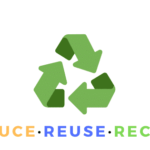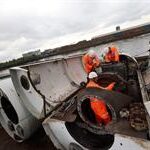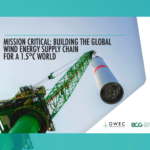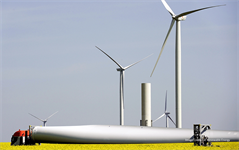Leak: EU Critical Raw Materials Act targets permanent magnet recycling for wind turbines
Energy Disrupter
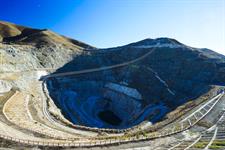
Recycling permanent magnets found in wind turbines and a host of other products, from dishwashers to electric vehicles, would be an effective way of securing a portion of the critical raw materials needed for the green energy transition, according to a leaked version of the Critical Raw Materials Act seen by Windpower Monthly.
Rare earth metals such as dysprosium and neodymium are used to create the powerful permanent magnets that are an essential component of most modern wind turbines.
The European Commission proposes 15% of the EU’s annual demand for critical raw materials – such as lithium and dysprosium – should be sourced from recycling within member states. A further 10% should come from extractive processes within the EU, it suggested in the draft act.
Meanwhile, the bill proposes 40% of all production of critical raw materials should also take place in EU member states after the extraction process.
Diversifying the supply chain
China currently dominates global production of rare earth materials, including of dysprosium, which is used to make permanent magnets in wind turbine generators. China alone accounted for 98% of the EU’s supply of rare earth metals including dysprosium, neodymium and terbium in 2020, according to the European Commission.
In the leaked draft law, the commission noted that reliance on single third-country producers such as China could jeopardise the EU’s energy transition goals if the existing supply chain were to be disrupted – as has happened since the outbreak of the Covid-19 pandemic.
The EU currently imports 95% of all the magnesium it needs from China, for example. The commission added that this vulnerability was shown in 2021 amid Covid-19 supply chain disruptions.
To tackle this, the European Commission also advocates diversifying the bloc’s supply chain of critical raw materials — setting a benchmark preventing reliance from a single country outside the EU for more than 70% of imports for “any strategic material” by 2030.
‘Strategic projects’
The commission would also seek to secure “strategic projects” overseas that can be relied upon to help meet demand. These should strengthen EU supply, meet diversification and sustainability standards, and should be supported financially by private investment and public funding where necessary, it argued.
Elsewhere, the law also posits that large companies responsible for much use of critical raw materials in the EU, including the manufacturing of wind turbines, should audit and “stress test” their supply chains.
To smooth the transition towards greater self-sufficiency in critical raw materials, the draft proposals would also mandate member states to source rare earth metals for recycling found in existing products and waste materials.
Under the proposals, member states would be obligated to create and publish digital public databases “containing all the information relevant to promote the recovery, notably the quantities and concentrations of critical raw materials in the extractive waste facility”.
The final version of the regulation is due to be formally unveiled on 16 March, and the final text will still have to be negotiated by the European Parliament and EU Council before member states must begin implementing the changes.




